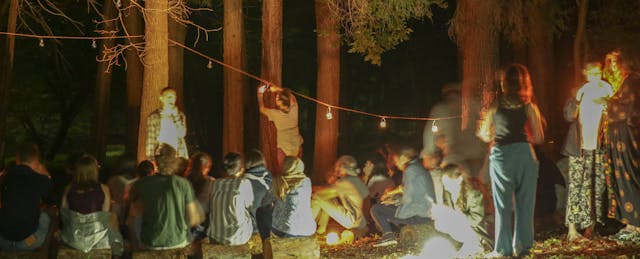These days, the concept of rethinking school has become the latest education buzzword, with everyone from the XQ Institute, book authors and U.S. education secretary Betsy DeVos touring across the country, championing the need to “rethink school” into something more relevant for today’s learner.
Yet one Japanese entrepreneur has been busy remaking how students learn across the world. His tip? Make school feel like summer camp.
Startup founder Kenta Koga raised $6.5 million earlier this year in part by asking people to take a pause from asking how current education can get better.
It’s an important question, he acknowledges, but Koga thinks he’s come up with a better one: “What if we can come up with a new way of schooling from scratch?”
There, too, Koga has plenty of ideas, many of which are baked into his seven-year-old education company Gakko, whose name means simply “school” in Japanese. Recently, it brought in $6.5 million in a seed round led by a small group of investors from Japan, including Masada Kobayashi, co-founder of Rakuten, bringing the company’s total raise closer to $7.5 million.
The company, which has traditionally focused on short summer camps, will use the cash to help fund an expansion into a series of international learning centers that will run year round. Koga’s company hones in on making project-based learning experiences more interesting and exciting for students. “Magical,” he often adds.
That last point is particularly important for Koga, who has something of a jack-of-all-trades background, with a computer science degree from Yale along with a few years of product development experience with tech companies. Uniquely, he’s also worked as a professional magician, performing the usual slate of card tricks and sleight of hand. All of that, he says, has shaped the way he feels schools should transform.
“When I look at education, I look at how can learning feel as magical as when you're sitting in a magic show, and how everything from the systems to the materials you use every day be as beautiful as something designed by a professional,” Koga says.
Sempai & Kohai
Gakko was essentially borne out of a simple question that Koga began asking people: If you could be a high school teacher for a single day, what would you teach and why? A lot of the answers surprised him. Most professionals, he found, wanted to give students a taste of what their own profession was really like, letting them explore and ask questions as they shared their expertise.
So, seven years ago, he gathered a group of ten professionals and began a two-week summer program for 40 high school-aged students in his native Japan, a country without a strong tradition for camps as Americans know them. There, sempai, or mentors, guide students (kohai) through short projects designed to spark creativity and inspiration.
The camps were a success and quickly became the “crown jewel” of the company, as Koga puts it. (Each 2-week session costs about $3,500, although scholarships are available). Since then, he’s hosted camps in France, Romania, Bali and the U.S. Campers have traveled from more than 60 different countries to take part in the camps, Koga says, because he sees cross-cultural collaboration as an essential skill. “I think so much of how work is done after college has become truly international these days,” he says. “So many things are happening without constraint of borders.”

Intentionally, Koga has shied away from hiring traditional educators, believing professionals could enrich students’ experience more by guiding them through challenges they might eventually encounter in their careers. “We’re trying to get as many creative minds as possible to become educators,” he says.
Gakko’s plans for the future revolve around a series of new after-school learning centers, the first of which is opening in Manhattan’s trendy SoHo neighborhood. The centers are set up similar to the summer camps, but with a greater focus on completing meaningful projects. In a pilot, scheduled to start in early 2018, 10 students will partner with a either a computer engineer or a musician to work on in-depth projects, such as creating an app from scratch and writing and recording songs. Koga, who recently moved to New York, says he already has sempai lined up to mentor students in woodworking, filmmaking and cooking as the programs expand.
“I hope students take away a sense of empowerment,” Koga says. “You can record an album, put on a concert. You don’t have to sit through four years of computer science education before you make an app. It’s about what you can do with what you learn.”
For now there are no immediate plans to turn Gakko into a regular 9 to 3 school, although Koga holds out some hope that it could turn into one someday. He wants to conduct more research into the idea, but if it did ever turn into an actual school, it would likely look like an extension of the learning center model, where students learn directly from mentors in projects they choose. “Knowledge learning,” which is how Koga defines traditional curriculum, is something students can already learn “on their own time, on their own terms, at their own pace.”
Gakko, on the other hand, offers a “refreshed perspective,” Koga says—something often lacking from the overall conversation on making schools more accessible.
Instead of thinking about how schools might change in the future, he says, “Let’s think about is what’s available now and what’s best in the world today.”


